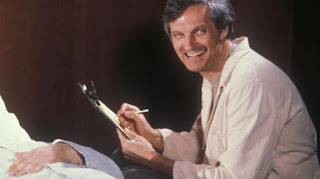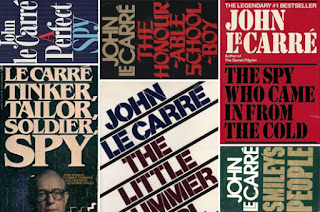One of my favorite Catholic authors is
Dr. Peter Kreeft, a longtime professor of philosophy at Boston College.
Recently, I saw a video where Professor Kreeft discussed Christian joy. He said
he was pleased to learn that the Catholic Church will not canonize a saint
unless all nine Fruits of the Spirit are present in his or her life. And this
includes joy. So, in other words, a Gloomy Gus or a Grouchy Gretchen cannot be declared
a saint.
As I’m sure you know, I discussed the
nine Fruits of the Spirit about a month ago. What’s that? You don’t remember?
You mean you’re not memorizing these brilliant essays? Oh, now I’ve lost all my
joy.
Just kidding. I don’t expect you to
memorize these essays. I don’t even memorize them. Half the time I’m not even
paying attention while I’m writing them. What’s that? Oh, it’s that obvious? Hmm,
thanks.
Anyway, to refresh your memory, the nine
Fruits of the Spirit, as described by St. Paul in his letter to the Galatians,
are: love, joy, peace, patience, kindness, generosity, faithfulness,
gentleness, and self-control.
I fully acknowledge that it might be
kind of hard to feel very joyful right now. The Church is mired in this horrible
season of shame, with more and more facts being uncovered about sexual predator
clergy, Animal House behavior in seminaries, and powerful bishops who willfully
ignored these problems.
It is, admittedly, somewhat difficult to
declare these days, “I am a joyful Catholic!”
However, we cannot let the present
Church scandal take away our joy. First, the men who committed those sinful
acts are a very small percentage of the clergy. Most priests are dedicated,
holy men who strive to love God and serve God’s people.
Second, and more importantly, we cannot
lose sight of the real reason God founded the Church, which is to tell the
world that He is real, that His Son Jesus is the Risen Lord, and that the good
news of the Gospel can provide the two deepest longings of the human heart:
true forgiveness of sins in this world and eternal life in Heaven once our time
on earth is over. This news is so breathtakingly good, it should put a
permanent smile on our face.
Dr. Kreeft makes this stunning claim:
“The Incarnation is the biggest joke in history.”
Now, obviously, he does not mean this in
the cynical, sarcastic way a militant atheist might say, “Religion is a joke!”
No, Kreeft is saying that the
Incarnation—the divine Lord Jesus taking on human flesh—is the most absurd
thing that ever happened in world history. Just think about it: the almighty,
all-perfect, supernatural Creator of the Universe decided to lower Himself and
become one of His dirty, smelly creatures.
The key to all humor is surprise. Think
about the first time you heard a very funny joke compared to the tenth time you
heard it. When there is no surprise, there is no humor.
The most surprising, startling, stunning
thing that has ever happened in the last 15 billion years is the Incarnation:
God becoming man. It’s like a farmer deciding to sleep in the pigpen. It’s like
the corporate CEO deciding to scrub toilets with the cleaning staff. It is so
amazingly unexpected, we can’t help but laugh out loud.
The Gospel message brings joy. The fact
that God loves us so much that He sent His only begotten Son to rescue us from
sin is the most wonderful news of all time. If it doesn’t put a smile on your face, then maybe you don’t quite understand the true Gospel message.
Despite the frustration, sadness, and
anger produced by the Church’s season of shame, we cannot lose sight of the big
picture. God is still God, and He is still in charge. Let’s not give in to the
temptation to be a Gloomy Gus or a Grouchy Gretchen. God wants us to be filled
with joy.



















































